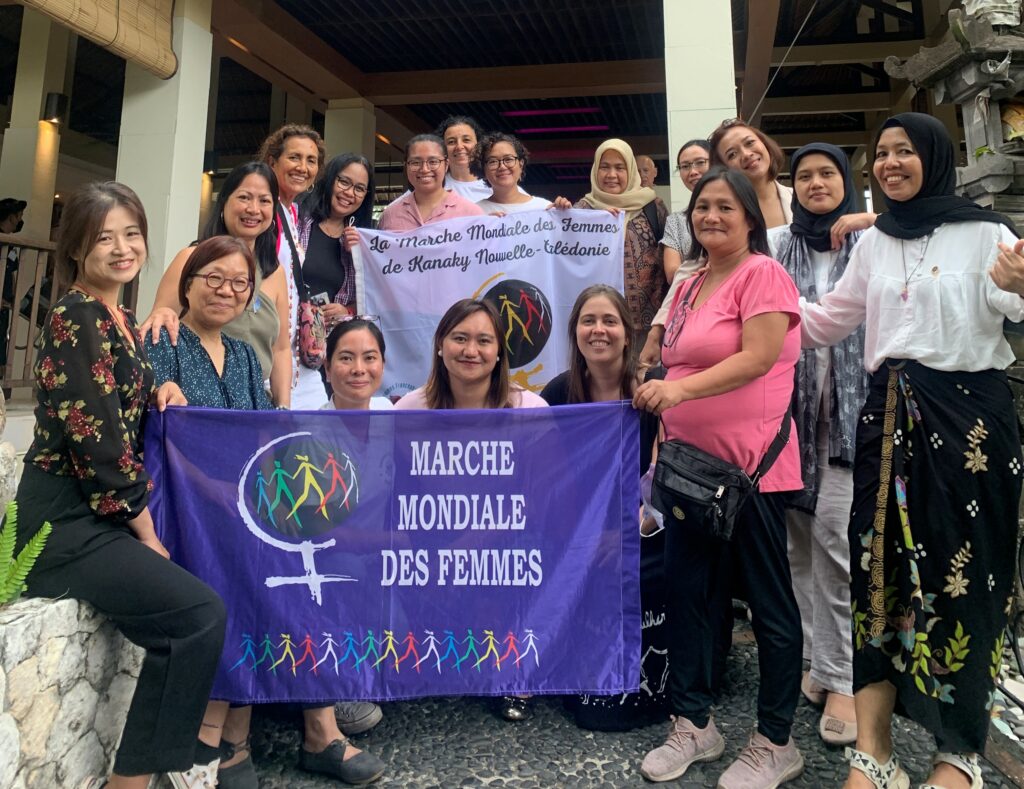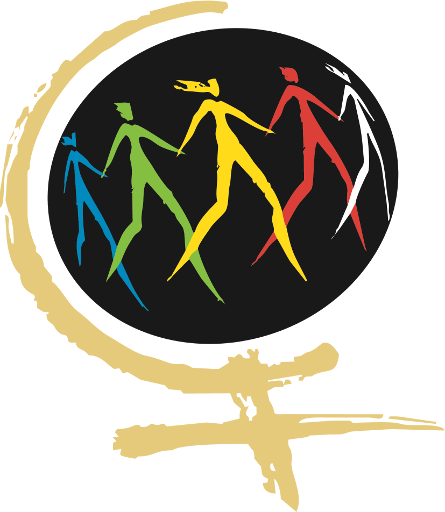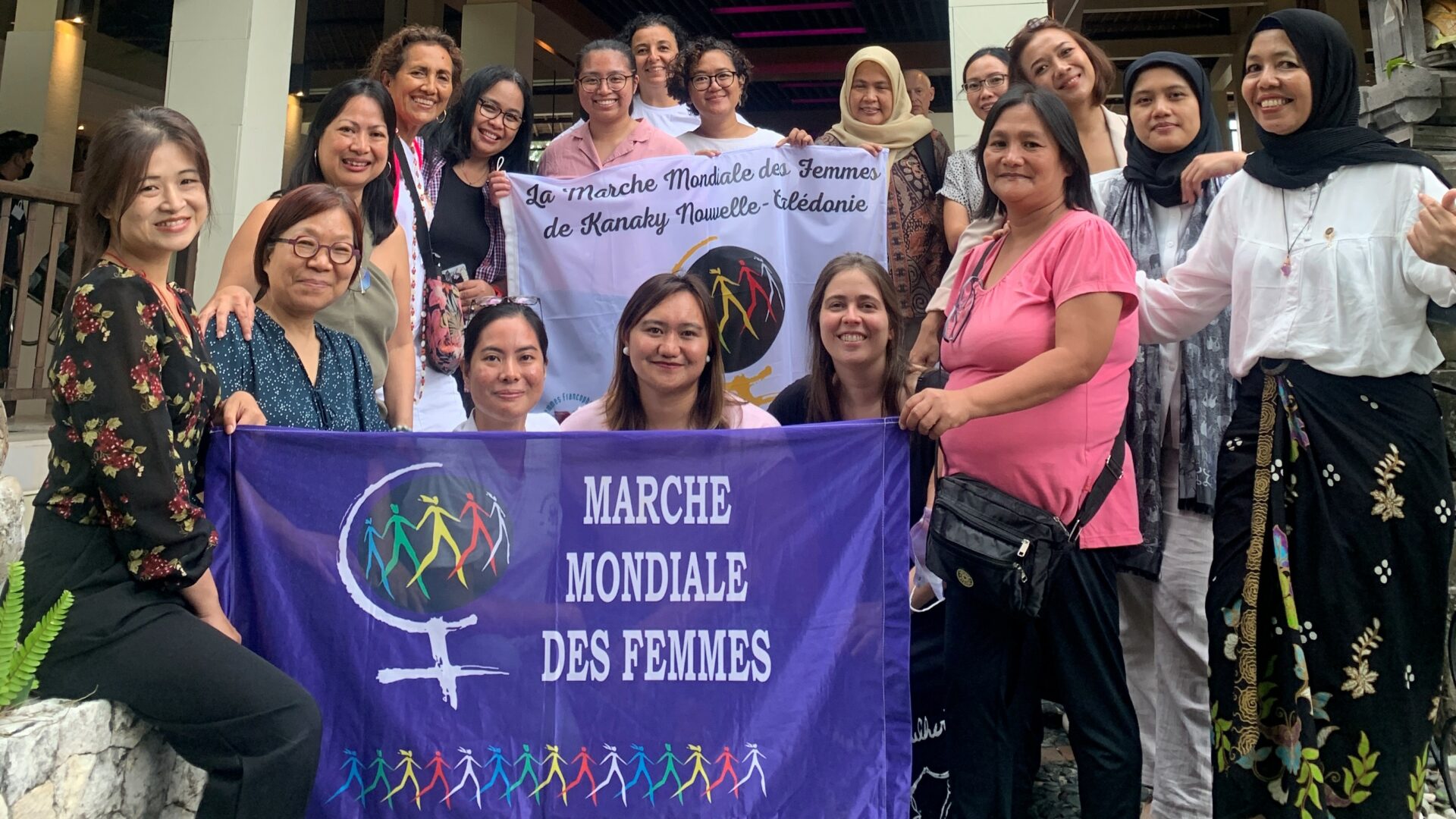
Statement: World March of Women East-Southeast Asia and Oceania
Bali May 11th 2023
Click here to read the news about the regional meeting held in Bali
The Oceania, East and Southeast Asia are strategic territories in the growing geo-economic and political tensions. These tensions are felt very concretely in women’s bodies and territories in the region. The current political and economic situation has historical roots in the situation experienced by women in Guam, Indonesia, the Philippines, South Korea and New Caledonia, countries marked by successive colonizations and/or military dictatorships.
From New Caledonia to Korea, women denounce how security becomes more and more an excuse for the increase of militarization in our region. Whether in Guam, a US colony with 30% of its territory occupied by US military bases, in South Korea or in the Philippines, where the popular struggle managed to expel the military bases in the 1990s, but which today faces the US military presence – although not permanently – the reality is the same: where there is a concentration of military men, there is violence against women and sexual exploitation in prostitution. Racist patriarchy continues to be sustained by militarized capitalism and is deepened by this system.
The territories are militarized because of conflicts – past, present or future – but also for the economic interests of national elites and transnational corporations, especially in mining. This becomes concrete in the territories and in the lives of women affected by development aggression.
And, here, women are rising up. For example, in Indonesia, in defense of the land, of nature, of their own lives, they put their bodies in front of the machines of destruction, in order to stop them and to halt the advance of the transnational corporations. The experience of women shows that there is a very close relationship between mining and militarization expressed by violence against women and poverty.
Women face agrarian conflicts, structural landgrabbing and the privatization of common goods. This permanent offensive of capital against life expels communities and indigenous peoples by direct violence or by the destruction of living conditions.
Tsunamis, typhoons, floods. This is a region recurrently affected by extreme climate disasters, impacts of which are exponentially multiplied by human-capitalist action, and by the neoliberalism that prioritizes the protection of private investment, while people face contamination and are vulnerable living with poor infrastructures. It is necessary to change the system in order not to change the climate.
This is why the South Korean women are part of the struggle against Japan’s willingness to dump radioactive waste into the Pacific Ocean. Whether it’s energy or nuclear weapons, the impact of contamination in the face of disasters is the same for people and for nature as a whole.
The contamination and acidification of marine ecosystems, as well as the military occupation of islands and coasts, directly impacts the bodies and health, but also the living conditions and economic autonomy of fisherfolk, including fisherwomen. In Indonesia, fisherwomen struggle for their livelihood and the recognition of their rights as fisherwomen, while defending and protecting the waters, in a reciprocal relationship of caring for the sea – while being cared by it. The resilience and care for the seas is a direct opposition to capitalist proposals in the name of sustainability, such as the “blue economy”, a project of large investments in corporate tourism and mega-projects of private appropriation in oceanic nature, inserting it in the dynamics of the financialized carbon market.
Women rise up and confront authoritarian governments subordinated to the domination projects in the region. From grassroots movements, we build a grassroots feminism that is necessarily anti-imperialist and anti-colonial. With creativity, resilience, and persistence, we confront capitalist-patriarchal relations and create alternative ways of life – with economic autonomy, strategies to secure access to the right to abortion and bodily autonomy, and processes of healing and organizing women survivors of multiple violences. Those are conditions to prevent more women to fall into prostitution, especially among victims of climate disasters.
Recovering the history of the creation of the World March of Women, when in the 2000s we affirmed that an alternative to neoliberalism was possible, and we built an internationalist movement against the roots that cause poverty and violence against women. With the feminist economy we propose to subvert and overcome capitalism, because our common life is incompatible with this system. We recognize ourselves in each other’s struggles, from our shared realities and from our unique strengths. We commit ourselves to, together, learn, follow and expand the organization of popular feminism in our countries, in our region, and internationally.
We resist to live, we live to transform!
World March of Women – East-South east asia and Oceania.
Bali May 11th 2023

